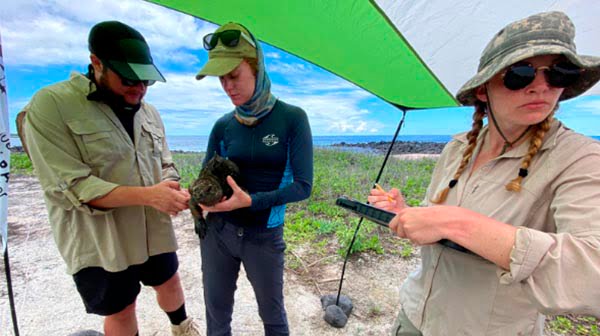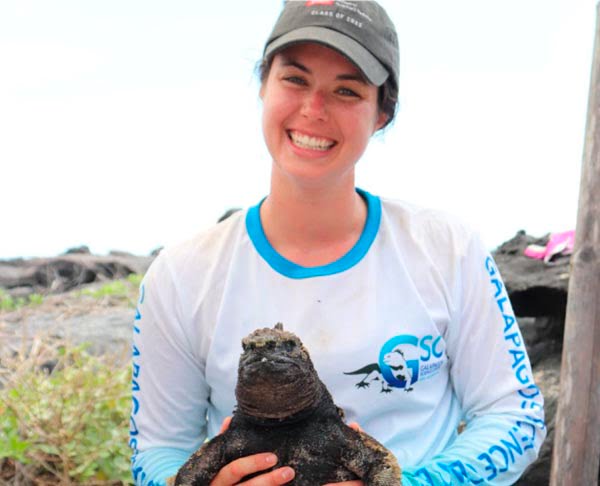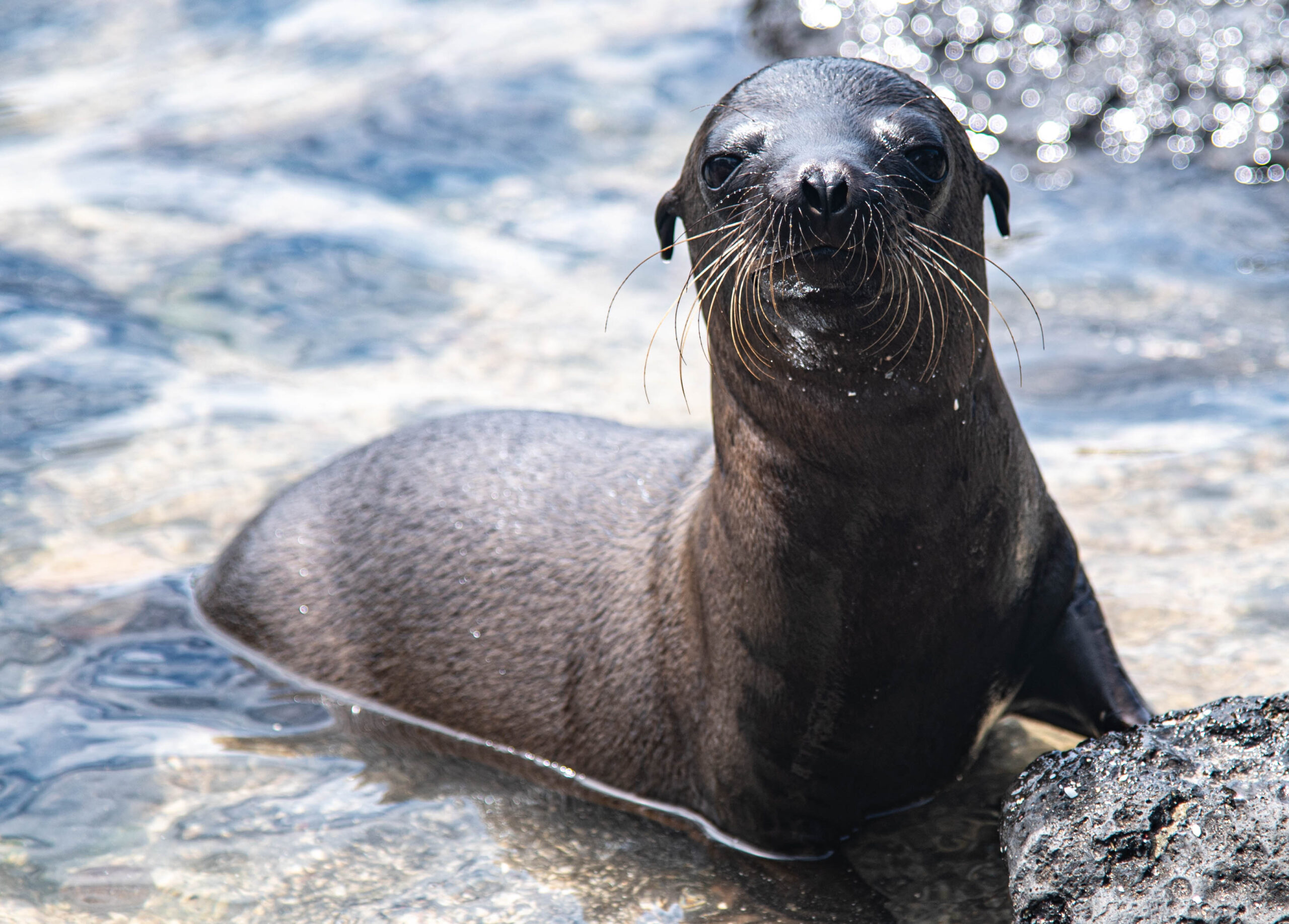Are you interested in knowing how science is done in Galapagos to participate in scientific research activities?
The Galapagos Science Center (GSC) has expanded its operations to host interdisciplinary research projects. Each program offers an opportunity to gain practical and theoretical experience in a variety of research areas. Our team of specialists evaluate and coordinate each program so that both students and researchers can make the most of their time on the Islands.
- Local and international students engage with the archipelago community to develop and enhance their skills in scientific research
- Three Experiential Education programs connect young people and scientific researchers with the Galapagos Islands
- Isla Vet is an international program that was developed at GSC for several students from NC State College of Veterinary Medicine to discover and understand the main anatomical and physiological attributes of the species in the Galapagos
Thanks to alliances with the Directorate of the Galapagos National Park and other local public institutions, the Galapagos Science Center (GSC) has expanded its operations to host interdisciplinary research projects.
Our Experiential Education program is a unique opportunity to gain hands-on, applied research experience, where students engage with the archipelago community and participate in scientific research activities.

Silvia Zavala Montoya, Coordinator of Experiential Education at the GSC, added: “This program was born from the interest of several national and international students in actively participating in the projects and research activities of the GSC, and contributing to the conservation of the archipelago.”
Our team of specialists evaluate and coordinate each program according to their needs so that both students and researchers can make the most of their time on the Islands. At the GSC we have two experiential education programs:
- Join Science!
- Learning Experiences – Hands on scientific research
Each program offers an opportunity to gain practical and theoretical experience in a variety of research areas.
Join Science! This educational program in research and science is aimed at USFQ Galapagos students, whose main objective is to inspire the next generation of Galapagos scientists by offering training activities that allow students to expand their possibilities of establishing professional networks.
Learning Experiences is a program aimed at national or international students, designed to provide the opportunity to work closely with researchers and experience active scientific research in Galapagos. Thus, through hands-on experience, students will develop a realistic view of scientific inquiry, its demands, and the excitement of discovery.
The program can be completed through a variety of options adapted to the particular needs of each student:
Junior Scientist is for high school graduates interested in science and conservation to prepare them for university studies in related disciplines. It is designed to offer future researchers the experience of participating and experiencing active scientific research in the Galapagos.
Bachelor Scientist is an intensive experience, specifically tailored for students from an international university who wish to participate in GSC flagship projects. Students accompany local researchers to experience hands-on scientific inquiry in areas of special interest like: sea lions, marine turtles and shark investigations.
Tailor Made has been designed to meet the different requirements of the many students applying for a research experience with the GSC. Participants will obtain a personalized program according to their interests and availability of time. This option is also aimed at professors from national or international universities, who wish to teach one of their courses in the Islands, whose main component is scientific research.
Isla Vet is one of the programs that have been selected to be part of Tailor Made. 18 students, 4 professors from NC State University, and 2 coordinators from Galapagos Science Center were part of the 6th edition of Isla Vet.
During March, the Galapagos Islands were surrounded by students of Veterinary Medicine of NC State University, and had the opportunity to discover, experience, and understand the main anatomical and physiological attributes of the species in the Galapagos.
The GSC was the base of operations for Dr. Gregory Lewbart, leader and guide of the Isla Vet program, who together with local and visiting scientists created a unique experience for young students.
Dr. Gregory Lewbart added, “We could not do anything without the collaboration of the GSC since they help us manage permits and comply with all regulations for research. We also have a laboratory where you can do DNA sequencing, and process blood samples, etc. And we also have the help from GSC researchers like Juan Pablo Muñoz and Daniela Alarcón, who manage everything we need in the field.”
Together we work as a team to develop the best travel logistics for our students so that they can experience not only the daily life of the islands but also enjoy closely researching and developing their scientific projects on the life and health of animals in the Galapagos Islands.
Some of the learning points for the Isla Vet students were:
- To understand safe capture techniques, restraint, physical examinations, and how to obtain diagnoses from multiple species including turtles, iguanas, sea lions, fish, and invertebrates.
- To understand the main health challenges for animals, both natural and anthropogenic.
- Explain the logistics involved with the permits and protocols necessary to sample protected species in a foreign country.
- Describe the advantages and disadvantages of living and working on small, sparsely inhabited islands, where tourism is a key economic driver.
NC State student Emma Anderson commented, “For 2 weeks we were part of lectures, lab sessions, and learning excursions. Every day that I have been here, I have been in awe and so grateful for this program which has given me the opportunity to work with these animals and potentially make a difference for their conservation.”
Do you need help choosing the program that best suits your needs? We are here to help you. Please reach out to us at: szavalam@usfq.edu.ec and live a different educational experience, adjusted to your scientific learning needs.






